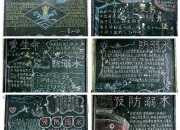高一关于介绍长城的英语作文
时间:2021-08-31The Great Wall of China, also known in China as the Great Wall of 10,000, is an ancient Chinese fortification built from the end of the 14th century until the beginning of the 17th century, during the Ming Dynasty, in order to protect China from raids by the Mongols and Turkic tribes. It was preceded by several walls built since the 3rd century BC against the raids of nomadic tribes coming from areas now in modern day Mongolia and Manchuria.The Wall stretches over a formidable 6,350 km (3,946 miles), from Shanhai Pass on the Bohai Gulf in the east, at the limit between China proper and Manchuria, to Lop Nur in the southeastern portion of Xinjiang Uygur Autonomous Region.

中国的长城,在中国也被称为长城的10000,是中国古代的一个设防建造的第十四世纪末直到第十七世纪初,在明代,为了由蒙古人和突厥部落保护中国免受袭击。这是之前几个墙自公元前第三世纪的游牧部落来自地区现在的蒙古和满洲里的突袭建。壁延伸超过一个艰巨的6350公里(3946英里),从东部渤海湾关山海,在中国和满洲里之间的界限,以罗布泊在新疆维吾尔族自治区东南部的部分。
The first major wall was built during the reign of the First Emperor, the main emperor of the short-lived Qin dynasty. This wall was not constructed as a single endeavor, but rather was created by the joining of several regional walls built by the Warring States. It was located much further north than the current Great Wall, and very little remains of it. A defensive wall on the northern border was built and maintained by several dynasties at different times in Chinese history. The Great Wall that can still be seen today was built during the Ming Dynasty, on a much larger scale and with longer lasting materials (solid stone used for the sides and the top of the Wall) than any wall that had been built before. The primary purpose of the wall was not to keep out people, who could scale the wall, but to insure that semi-nomadic people on the outside of the wall could not cross with their horses or return easily with stolen property.
第一主壁的第一个皇帝统治时期建造的,短命的秦朝的主要皇帝。这堵墙没有建造作为一个单一的努力,而是由几个区域的墙而建的战国加入了。这是位于更远的北部比目前的长城,很少遗骸它。在北部边境修建了防御城墙,在中国历史上不同时期几代保持。长城,今天依然可以看到建于明朝,一个更大的规模和较长的持久材料(固体石用于两侧和顶部的墙)比任何墙壁已建成之前。墙的主要目的是不让出来的人,谁能翻墙,但要保证在墙体的外侧半游牧民族,不能交叉的马匹或返回轻松赃物。











